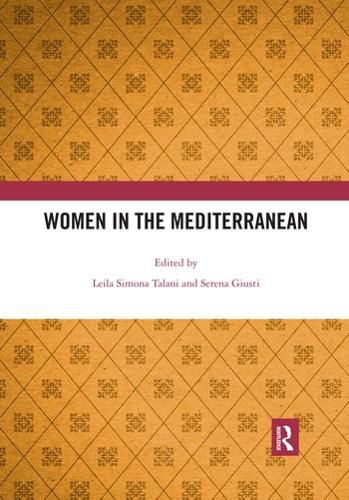Readings Newsletter
Become a Readings Member to make your shopping experience even easier.
Sign in or sign up for free!
You’re not far away from qualifying for FREE standard shipping within Australia
You’ve qualified for FREE standard shipping within Australia
The cart is loading…






The book addresses the challenges faced by women on the two shores of the Mediterranean from a multidisciplinary and interdisciplinary perspective. While in the European Union’s (EU) Mediterranean countries inequality is mostly linked to the social sphere and, in particular refers to labour market dynamics, in the Middle East and Northern Africa (MENA) area, the situation is more complicated as the social and private spheres are blended and cultural and religious factors have a great impact on women autonomy and opportunities beyond the family perimeter. The different challenges women are facing on the two sides of the Mediterranean have sometimes originated incomprehension and misperceptions. Western-supported policies devoted to fill the gap between men and women in the MENA area have overlooked countries’ peculiarities simply exporting models tailored for EU’s member states. The EU’s attempts to strengthen relations with the Mediterranean countries on a multilevel basis have not rescued women from marginalisation. Nevertheless, during the 2011 awakening, women played an important role in activating civil society. They are still considered as a key part of the fight against terrorism and radicalisation, although in some countries their condition has worsened after secular regimes have been downturned. The number of migrant women has increased and, not differently from men, they are looking for opportunities and better conditions of life while Western media tend to present them in a stereotyped way either as traumatized victim and/or as caring mother. There are other misleading common places, which need to be better conceptualised and understood, such as the alleged incompatibility between Islam and women rights. Unfortunately, women’s rights are still under attack even in European countries where they are considered consolidated.
The chapters in this book were originally published in a special issue of the Journal of the Balkans and Near Eastern Studies.
$9.00 standard shipping within Australia
FREE standard shipping within Australia for orders over $100.00
Express & International shipping calculated at checkout
The book addresses the challenges faced by women on the two shores of the Mediterranean from a multidisciplinary and interdisciplinary perspective. While in the European Union’s (EU) Mediterranean countries inequality is mostly linked to the social sphere and, in particular refers to labour market dynamics, in the Middle East and Northern Africa (MENA) area, the situation is more complicated as the social and private spheres are blended and cultural and religious factors have a great impact on women autonomy and opportunities beyond the family perimeter. The different challenges women are facing on the two sides of the Mediterranean have sometimes originated incomprehension and misperceptions. Western-supported policies devoted to fill the gap between men and women in the MENA area have overlooked countries’ peculiarities simply exporting models tailored for EU’s member states. The EU’s attempts to strengthen relations with the Mediterranean countries on a multilevel basis have not rescued women from marginalisation. Nevertheless, during the 2011 awakening, women played an important role in activating civil society. They are still considered as a key part of the fight against terrorism and radicalisation, although in some countries their condition has worsened after secular regimes have been downturned. The number of migrant women has increased and, not differently from men, they are looking for opportunities and better conditions of life while Western media tend to present them in a stereotyped way either as traumatized victim and/or as caring mother. There are other misleading common places, which need to be better conceptualised and understood, such as the alleged incompatibility between Islam and women rights. Unfortunately, women’s rights are still under attack even in European countries where they are considered consolidated.
The chapters in this book were originally published in a special issue of the Journal of the Balkans and Near Eastern Studies.